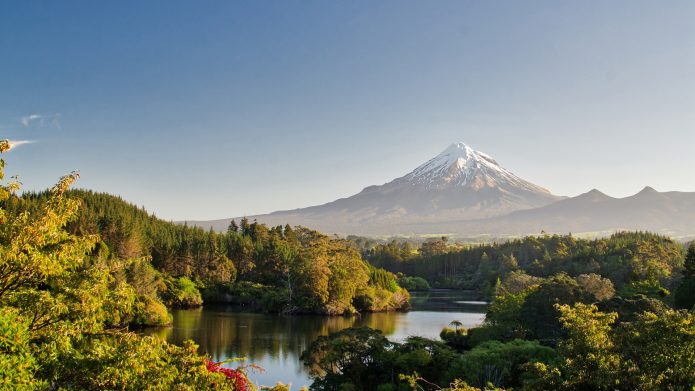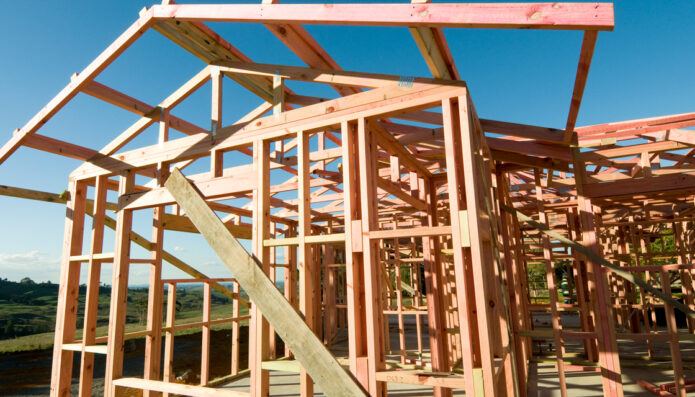PHOTO: Trade Me Property
Tenants around the country saw a hike in rent prices in February according to the latest Trade Me Rental Price Index. The national median weekly rent hit a new record high – $520 per week, a 5.1 per cent increase on February 2019 and the second consecutive record breaking month in a row.
Trade Me spokesperson Aaron Clancy said it is normal to see an increase in rental demand in February. “Lots of tenancies come up for renewal at the beginning of the year, so we see heaps of Kiwis looking for new places to live.
Unsurprisingly, student city rental markets saw some of the biggest jumps in February. Prospective tenants are facing tough competition and all-time high rent prices.”
In the Wellington region, rent prices rose by 7.5 per cent when compared to February 2019. Hamilton city’s median weekly rent price hit a record high of $470 in February, up 7 per cent on the previous year. Palmerston North rent prices were also up 10.3 per cent compared to a year ago.
Rents also escalated in the student centres down south. After remaining consistent at $400 in February in both 2018 and 2019, last month the median rent price in Christchurch rose to $425 – a 6.3 per cent increase. Similarly, Dunedin rents jumped by 6.9 per cent since the same time last year.
Clancy said the beginning of the university year sees an influx of students looking for flats in popular student cities. “Competition is tough, with heightened demand making it trickier to secure rental properties in these areas. It doesn’t look like there’s much end in sight at the moment, in many parts of the country demand is outstripping supply significantly and it looks like we’ll continue to see high rents for the next few months at least.”
Spotlight on the main centres
Mr Clancy said the Auckland region’s rental price increase in February was “small but steady”, with 1.8 per cent growth on the previous year. “Auckland renters have more reason to smile than most other parts of the country, the median weekly rent didn’t move compared to January staying at $570.
“There is plenty of demand with enquiries up 15 per cent on this time last year but supply is keeping pace so rents are currently pretty stable in the Super City. There are still pockets of very high demand around the city though and we’re seeing a lot of interest in the right rental in the right location.”
Trade Me’s most popular rental in February was on Drew Street in Auckland City. Mr Clancy said the two bedroom home attracted a “whopping” 155 enquiries within two days of listing.
Auckland’s most popular rental listings in February 2020
| Rental address | Suburb | Enquiries in first 2 days | |
| 1 | Drew Street | Auckland City | 155 |
| 2 | Hendon Avenue | Auckland City | 93 |
| 3 | Hendon Avenue | Auckland City | 80 |
Mr Clancy said prices in the Wellington region continued to surge, with the average rental price reaching $570 per week – a 7.5 per cent increase on February 2019 prices.
“Taking a closer look at the region, Wellington city rental prices remained the most expensive in the region ($600), followed by Porirua ($550) and Lower Hutt ($530).
“Demand in Wellington was actually down on last year (-1 per cent on 2019) and the supply of rentals was up 12 per cent, but it seems that supply still has some way to go as landlords are still able to command very high prices. We’ll be watching with interest to see if supply continues to creep up and if rents will stabilise.”
Wellington’s most popular rental listing of the month was a two bedroom house located on Tinakori Road, receiving 98 enquiries in its first two days onsite.
Wellington’s most popular rental listings in February 2020
| Rental address | Suburb | Enquiries in first 2 days | |
| 1 | Tinakori Road | Wellington Central | 98 |
| 2 | Thomas Street | Stokes Valley | 97 |
| 3 | Raukawa Street Stokes Valley | Lower Hutt | 82 |
Regional New Zealand sees growth
February saw double digit growth in a number of regions all around the country, said Mr Clancy. In Northland, the median weekly rent price reached a new record high of $460 – up 12.2 per cent from February 2019.
The number of properties available to rent also rose 14 per cent when compared to the year before, and a 10.07 per cent increase in rental enquiries.
The median weekly rent price hit $475 in Nelson/Tasman, a 10.5 per cent increase on February 2019. Similar growth rates were seen in Marlborough, with a 11 per cent increase in median price per week to $455 and Southland with an 11.9 per cent increase to $330.
The Otago rental market saw immense growth, reaching a record weekly rent price of $440. This marks 22.2 per cent growth on February 2019 prices. The number of properties available to rent was also up 23.85% on February 2019. Correspondingly, demand was up by 12.61 per cent from the same time last year.
All regions continue to experience healthy growth with the overall year-on-year growth trending at 5.1 per cent in February 2020.
Apartments, townhouse and units rent on the rise
The median weekly rent has reached new highs for apartments and units when compared to February 2019.
This follows a steady rise in urban rental prices over the last few years, said Mr Clancy. “Keeping with previous years. Wellington townhouse and unit rent prices are seeing solid annual growth.
Apartments are the exception, with prices remaining flat in growth from February last year.”
The median rent for apartments across the country increased by 4.2 per cent in February 2019 at $500 per week.
-ends-














